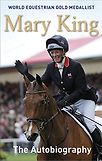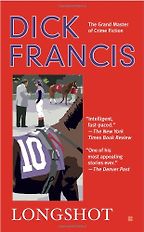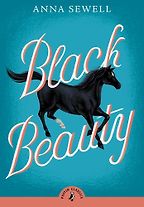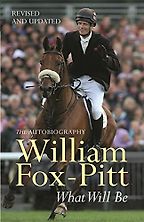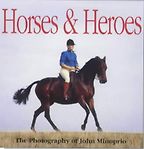For those who don’t know, can you explain what equestrian “eventing” competitions involve?
It’s the equivalent to a triathlon, with horses. You use one horse to do three very diverse phases. The first phase is the dressage, the second phase is the cross country, and the third phase is the show jumping.
You have competed in so many different events. What is the toughest competition to take part in?
Badminton Horse Trials, which is hosted in the United Kingdom. It is famous for having the biggest cross country course that you could ever jump round. I would say it was at its biggest in the 1980s. These days the fences aren’t quite so large, but the course has become much more technical and precise.
You have represented Great Britain in five different Olympics – what is the atmosphere like there, as opposed to other events?
It’s very different, because on a week-to-week basis through the year we are competing as individuals – just you and your horses. At a championship event, of which the Olympics is one, you are riding as a team and representing your country, so it has a different feel. The Olympics especially make you very patriotic – you are part of Team GB.
Do you think Great Britain is in with a chance this year?
We are strong as a nation. We are good at the sport. We are currently the world champions, so we have a chance of winning a gold medal, but obviously with horses there is a whole different element involved. You need a lot of luck for it to work, and the last couple of Olympics we have gone with real gold medal chances and haven’t brought back gold. Fingers crossed it will happen this time.
It’s not as predictable as other sports might be, because of the risk of the horse getting injured.
Exactly.
Let’s have a look at some of your favourite books to do with horses. The first is Veterinary Notes for Horse Owners, written in the 19th century but now updated.
This is a book I have had since I was a teenager, and I now have the updated version. It is a real encyclopedia of equine veterinary problems. Obviously I would ask a vet to come and see a horse, but it is a very good manual to use to get information about what the problem might be.
What kinds of injuries do horses most commonly get when they are competing?
Competition horses – as with any athlete who is very fit – are prone to strains of tendons, muscles and ligaments. That is one of the injuries we always dread our horses getting, because it means time out.
“Obviously with horses there is a whole different element involved. You need a lot of luck for it to work.”
Horses are very good at having all sorts of things wrong with them, even on a day-to-day basis. Things like treading on a stone and having a bruised sole. They might pick up a virus or infection, or a little cut that leads to an infection. There are all sorts of injuries that can happen to them.
What happens if your horse goes lame two weeks before the Olympics?
That is the end of that, depending on what is causing the lameness. If it has strained a tendon two weeks before the Olympics, that is your chance of the Olympics gone.
But someone like you or William Fox-Pitt would surely have more than one horse?
I am fortunate enough at the moment to have three horses short-listed for the Olympics. Realistically, two are neck and neck as to which one I will ride. Only me and William Fox-Pitt are in that situation. The other top riders all have one horse.
It sounds like a very fraught situation.
You can’t look at it like that. You just have to do your best, prepare to the best of your ability, and what will be, will be.
One of your greatest horses, whom you have written about, was called King William. It sounds like he was a personality in his own right.
He was the most wonderful horse to have in my career. He gave me my first ever win at Badminton Horse Trials, which is any event rider’s dream. We won it in 1992 and that made him a very special horse for me. That first Badminton win still feels like the highlight of my career, although I did win it again in 2000. And he took me to two Olympic Games.
He was an amazing cross country horse, really brave and bold. He was also a very handsome horse, beautiful and proud, and the crowds could recognise him because he had a big white blaze on his face. He had a huge fan club.
Next on your list is a novel by Dick Francis. How would describe the type of book that he writes?
They are all based on the racing world. Dick Francis was a former jockey. Every book I have read of his is very exciting. They always begin with something that captures you right from the start. In this book, the main character is a young author called John Kendall who has agreed to write the biography of a famous horse trainer. When he arrives at the trainer’s house, one of the riders has just been acquitted of the murder of a young woman he had quarrelled with. But after spending time with the trainer and his team, Kendall discovers there is more to the stable girl’s murder than meets the eye.
Why do you think Dick Francis continues to be so popular?
I think it is because he is so knowledgeable about the world he is writing about. Also, the books are very easy to read. They are something you can pick up and you don’t have to concentrate too hard on. There is always lots of mystery and intrigue, and a bit of romance – which all makes for a good mix.
I presume Black Beauty by Anna Sewell was a childhood favourite.
Yes, my mother read this to me as a bedtime story. As a horsey young girl, it was a wonderful book to have read to you. It was written in 1877, in the first person – which was ground-breaking at the time.Basically it is the memoir of a horse called Black Beauty, who starts off as a happy young colt on a farm then gets sold to pull cabs in London and isn’t treated very well, but finally ends up in a happy retirement.
“As a horsey young girl, it was a wonderful book to have read to you.”
Basically it is the memoir of a horse called Black Beauty, who starts off as a happy young colt on a farm then gets sold to pull cabs in London and isn’t treated very well, but finally ends up in a happy retirement.
The book went on to become one of the bestselling books of all time, selling 50 million copies worldwide. What effect did it have on you when you read it?
You fall in love with him at the start of the book, then there is a pulling of heartstrings when he is so badly treated, and then happiness when it turns out alright at the end.
Anna Sewell wrote the novel in order to “induce kindness, sympathy and an understanding treatment of horses”. Because of the way she portrayed the plight of working horses, many people were concerned about their welfare and much was done to improve their situation.
Yes, and that was a very good thing.
Your next choice is the autobiography of your Olympic team mate William Fox-Pitt.
He is an absolute legend. We are good friends, and I think he is the better rider than I. Even though last year I finished world number one and he was world number two, I still think he is the better rider.
What makes you say that? It’s very modest of you.
He just is. He has such fantastic affinity with his horses. He is soft and quiet with them. The way he runs his yard and the life his horses have is very natural. They are turned out into the field a lot, and have a lovely time. And it is extraordinary how he performs at top level events. He has success after success.
That must be about attitude as well as talent.
Yes, and if you get all the top riders together we are all similar in a way.
What do you have in common?
Inside, you have a steely determination and the will to win, but you have to be very calm, relaxed and ready to accept what is thrown at you. It is an exciting and dangerous competition to be in, and to cope with that year in and year out you have got to have a calm mind. If you were a nervy sort of person it wouldn’t work at all.
And the horse would feel that as well.
That’s right. The horse needs the rider to be calm, relaxed and confident because that will transfer through to the horse. William is very much that. He has an amazing balance, especially considering how tall he is. He is something like six foot five, yet he is always soft and balanced on a horse, and gives them plenty of freedom when they are galloping and jumping.
“The horse needs the rider to be calm, relaxed and confident because that will transfer through to the horse.”
Some riders are very tight with the reins and hard on their horses, and a bit aggressive. He is not like that at all. Because of that the horses go very sweetly and confidently for him.
In his book he talks about the importance of teamwork. How does that operate in an event like the Olympics?
The team will do things like share views on the cross-country course. When we walk around the course together, we will be discussing how you think a certain fence is going to ride. We will discuss what angle or approach you should have to each fence. Even though you are timed, sometimes we might think it is wise to take a slightly longer option, which might waste a few seconds but will get you a clear round. So we pool our knowledge to get the best for the team.
You mentioned that riding, although exciting, can be very dangerous. You broke your neck once – did that put you off competing?
I wasn’t competing when I broke my neck. I was just riding a horse at home in a field. That shows that it is not the competing itself that is dangerous. Whenever you sit on a horse, something could happen. It was a young horse that spooked sharply at a pheasant in a hedge, and I fell off and landed awkwardly.
It can be risky because they are animals with minds of their own, and they are unpredictable. But that is what makes it so exciting, so it didn’t put me off.
Finally, you have chosen Horses and Heroes by John Minoprio.
This photography book is a wonderful collection of portraits of horses and riders throughout the years. I was given it after he came and photographed me. You have photos from all the different walks of equestrian life – the showing world, racing, eventing and show jumping.
Eventing is something that we excel at in Britain. You are part of a team that stands a really good chance of winning gold this summer, and yet most people are more interested in football or our cycling hopes for the Olympics – why do you think that is?
I think eventing gives the impression of being an elitist sport, because horses are very expensive to buy and to keep. But to be honest, with the majority of riders it is the horse owners and sponsors who have the money. I don’t own any horses myself. The majority of riders aren’t wealthy, and are very much reliant on their skill and getting a sponsor.
There is also the assumption that people only get into riding if they are from a rich, horsey background – which wasn’t your case at all.
Yes, we lived in a rented cottage and my parents weren’t at all horsey folk. We had no land and no money. We lived off my father’s naval pension. And I am not the only one. An awful lot of riders have really struggled from the start, and you need a lot of determination to succeed.
Get the weekly Five Books newsletter
So how did you manage to get into riding?
I think I was born with the drive. I’m not sure where it came from. But in the village I lived in, the vicar had a pony which I used to find fascinating. I spent as much time as I could with the pony and I would go off on my bicycle looking for other ponies in the area, and find out whether I could ride them. Whenever we were driving and I saw a pony, I would ask my parents to stop so I could stroke it.
So for some reason I had a connection with horses, and the more I rode them the more I wanted to succeed and become a top rider, which seemed totally impossible. When I first went on the Pony Club coach trip to Badminton at the age of 12, I was absolutely agog at what I was seeing – all the shiny horses and shiny riders. I couldn’t believe that anyone could be so brave as to gallop at these huge jumps, or to manage to get their horses to do all those difficult moves in the dressage. I came away from that event thinking: That is what I would love to do one day.
Five Books aims to keep its book recommendations and interviews up to date. If you are the interviewee and would like to update your choice of books (or even just what you say about them) please email us at [email protected]
Five Books interviews are expensive to produce. If you've enjoyed this interview, please support us by donating a small amount.

